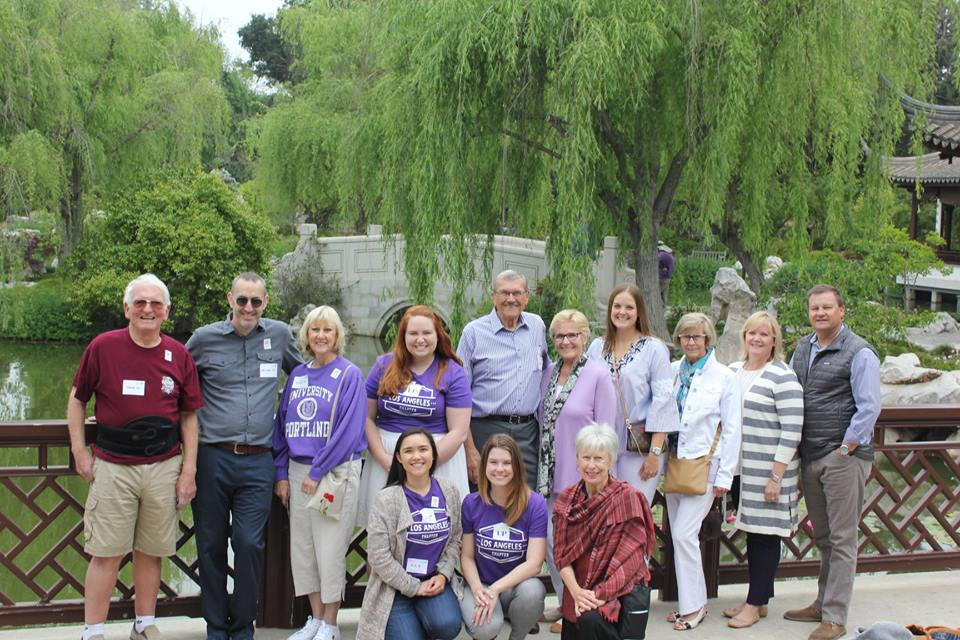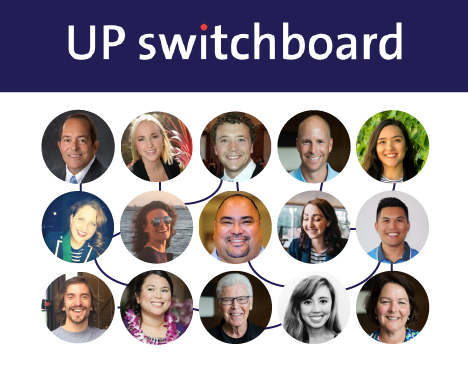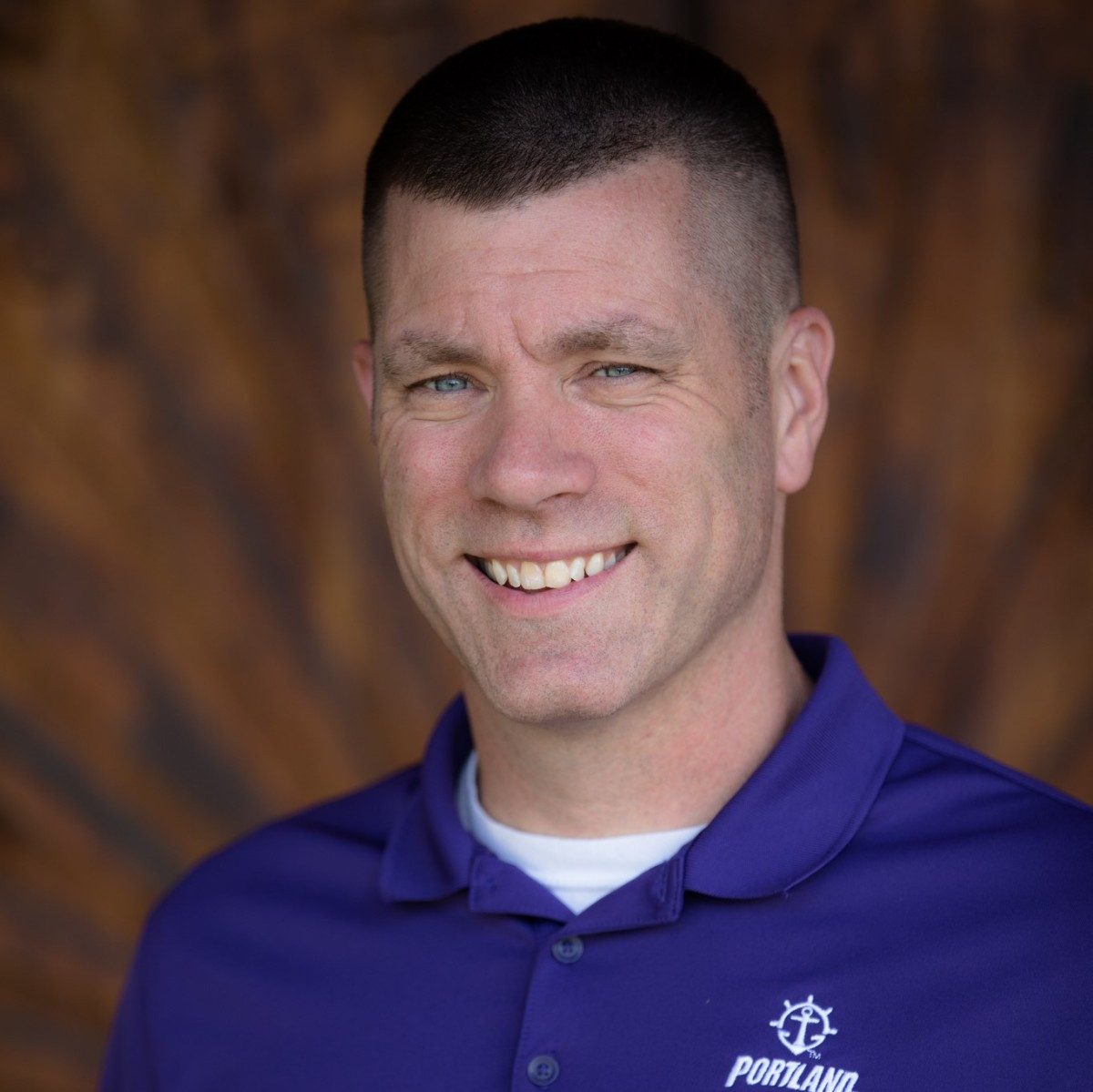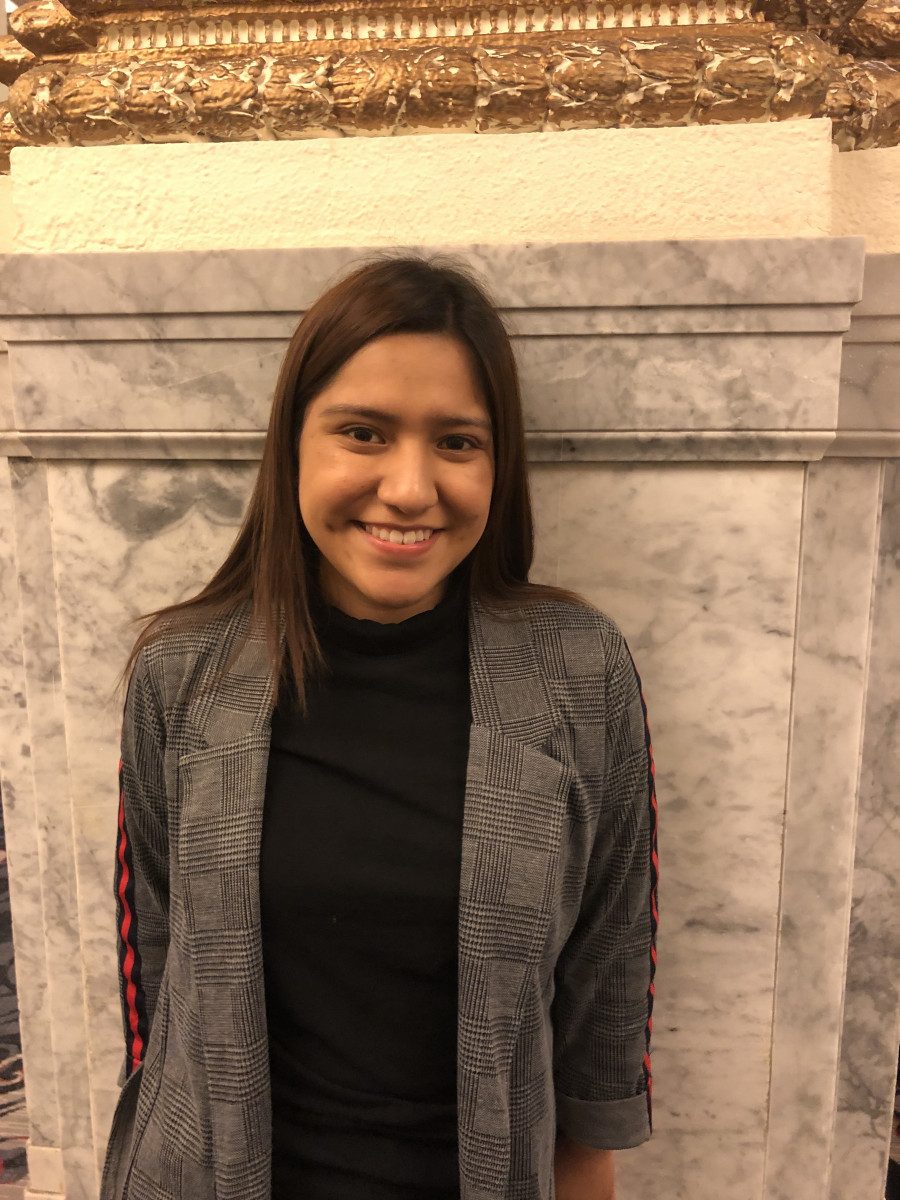“How did you choose UP?” I think this is a question that nearly every Pilot student has been asked at some point. If I’m being honest, I can’t quite recall what my thought process was as an 18-year-old high school senior, but I do know that by the end of my first year on The Bluff, I could readily respond if someone asked, “Why are you choosing to stay at UP?” Like many first-year students, I had moments of doubt. But by the end of spring semester, as I reflected on my first year away at college, I realized that I had stumbled into a warm, compassionate community, and I had no interest in leaving! I couldn’t wait to return for my sophomore year and to become increasingly involved and invested.
Fast-forward a few years to the spring of 1998. As the remaining days of my senior year dwindled, I felt profound sadness about leaving The Bluff and heading out into the real world. I thought that a chapter of my life was closing, until a wise friend reminded me, “Remember, you don’t come to UP just to be a student. You come to be an alum, too.” Indeed, you do. Little did I know that my post-graduate experience of the University would be equally as rich as my years as an undergraduate.
So now that final exams and the conferral of degrees are in the rear-view mirror, what’s next for our graduating Pilot families? Here are three easy ways for you and your recent graduate to stay connected with the University of Portland.

1. Connect with your local regional chapter.
Parents, alumni, and friends of UP are invited to stay connected with the UP community by participating in social, service, faith, and educational events available through our regional chapters. Check out our list of chapters to see if there is one in a city near you! Our Pilot communities continue to thrive while maintaining a safe social distance, so be on the lookout for virtual gatherings in the coming months (and future gatherings once it is safe to do so).

2. Sign up for UP Switchboard.
UP Switchboard is an online platform that makes it simple for UP students, alumni, parents, and community members to ask for help or offer support in areas such as career networking, hosting, housing, advice, and events. Learn more about Switchboard and see how you can demonstrate UP’s spirit of generosity by helping other Pilots!

3. Sign up to receive Light from The Bluff
Light from The Bluff is a monthly, faith-based newsletter for University of Portland alumni, parents, and friends. Each edition features a scripture reflection written by a UP community member as well as other faith-focused content. Sign up to receive our next issue!
We will also be communicating with our new graduates on a regular basis throughout May and June to share additional resources and opportunities for alumni. We are grateful for our Pilot families, and we hope that you will stay in touch!

Craig Swinyard Ph.D. ’98 graduated from UP with a degree in mathematics. During his undergraduate days, Craig was actively involved as an RA in Villa Maria Hall during his junior and senior year. Craig returned to The Bluff in 2008 as a faculty member in the mathematics department and continues to teach in addition to his role as Director of Alumni & Parent Relations.



 Tyler Hale currently serves as
Tyler Hale currently serves as